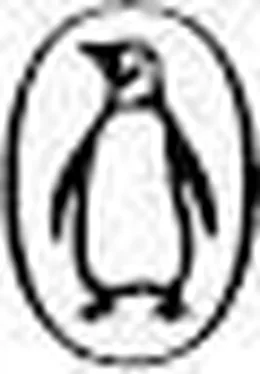Trevor, William - Children Of Dynmouth
Здесь есть возможность читать онлайн «Trevor, William - Children Of Dynmouth» весь текст электронной книги совершенно бесплатно (целиком полную версию без сокращений). В некоторых случаях можно слушать аудио, скачать через торрент в формате fb2 и присутствует краткое содержание. Год выпуска: 1976, Издательство: Penguin Publishing, Жанр: Старинная литература, на английском языке. Описание произведения, (предисловие) а так же отзывы посетителей доступны на портале библиотеки ЛибКат.
- Название:Children Of Dynmouth
- Автор:
- Издательство:Penguin Publishing
- Жанр:
- Год:1976
- ISBN:нет данных
- Рейтинг книги:4 / 5. Голосов: 1
-
Избранное:Добавить в избранное
- Отзывы:
-
Ваша оценка:
- 80
- 1
- 2
- 3
- 4
- 5
Children Of Dynmouth: краткое содержание, описание и аннотация
Предлагаем к чтению аннотацию, описание, краткое содержание или предисловие (зависит от того, что написал сам автор книги «Children Of Dynmouth»). Если вы не нашли необходимую информацию о книге — напишите в комментариях, мы постараемся отыскать её.
Children Of Dynmouth — читать онлайн бесплатно полную книгу (весь текст) целиком
Ниже представлен текст книги, разбитый по страницам. Система сохранения места последней прочитанной страницы, позволяет с удобством читать онлайн бесплатно книгу «Children Of Dynmouth», без необходимости каждый раз заново искать на чём Вы остановились. Поставьте закладку, и сможете в любой момент перейти на страницу, на которой закончили чтение.
Интервал:
Закладка:
*
He smiled when Stephen came to him. He nodded and smiled, not reaching for the carrier-bag, waiting for Stephen to hold it out to him. He was sucking a gum. His sharp-boned face was lit with pleasure.
‘I’ll never forget it,’ he said, ‘the sound of your mum going over that cliff, Stephen.’
11
It being Good Friday, the shops in Dynmouth were mostly closed. Fore Street and East Street were quiet, Pretty Street and Lace Street deserted. No one was about in the suburban roads and avenues.
In Sir Walter Raleigh Park, however, the activities of Ring’s Amusements were reaching a crescendo: tomorrow afternoon, at one forty-five, the booths and stalls and whirligigs would welcome the public. The shouting of the dark-faced men was louder, the bustle more urgent, the dismantled machinery for the most part back in place again. A dozen or so extra men had made their appearance in Sir Walter Raleigh Park, with wives and children who now assisted with the preparations. Lines of washing hung between the caravans, transistor radios played loudly. There was a smell of frying.
The Queen Victoria Hotel and the Marine, the Duke’s Head and the Swan were livelier with visitors than they had been. The Queen Victoria was full for the Easter weekend, the others nearly so. Some of these visitors strolled along the promenade; a few penetrated to the beach; none ventured on to the cliffs. Children eyed the closed Essoldo; a handful of golfers moved briskly on the golf-course. Quentin Featherston cut the grass of the rectory lawns again. It hadn’t grown much since he’d cut it a week ago, but he wanted the lawns to have a shaved appearance for the Easter Fête.
As he operated the Suffolk Punch, his thoughts wandered idly, in and out about his parish, through the poverty in Boughs Lane, among the inadequate children of Mrs Slewy. He’d woken up at a quarter past four that morning to find Lavinia awake beside him, as often she was now in the middle of the night. She said she was sorry she’d been so cross about Timothy Gedge. She worried about the twins, she said. The twins had wandered out of the rectory garden and had been missing for twenty minutes. They’d played with matches in their room, lighting a fire in the garden of their dolls’ house. All children, he’d begun to say, but she’d cut him short. Another thing, she didn’t feel she was good any more at running the nursery school. Indignantly, he’d told her what nonsense that was. Her nursery school had a waiting list a mile long. Everyone said it was better than the Ring-o-Roses, where there was no discipline of any kind whatsoever. And the playgroup that the W R V S ran was stodgy. In the end, to his own surprise, he had quite successfully smoothed away her early-morning blues, and she’d returned to sleep without having mentioned once the child she’d lost.
As he walked behind the lawnmower he didn’t care for, he remembered the first time he’d ever seen her. He’d met her on the beach walking with a dog, a wire-haired terrier called Dolly which had come sniffing up to him. He’d told her he’d come to Dynmouth to help old Canon Flewett. He’d loved her immediately, without any hesitation.
He loved her still, with just the same passion. ‘You’re to be good with Mummy,’ he’d commanded the twins after breakfast. ‘Do you understand now?’ He’d regarded them unsmilingly, as ferociously as he could. If there was trouble of any kind whatsoever that day, either the lighting of fires or leaving the rectory garden for a single instant, they would not be permitted to attend the Easter Fête. They would be put in two separate rooms, with the curtains drawn. Humbly they had promised to be good.
He emptied the grass-box, depositing the cuttings in a corner. He said to himself that there was nothing wrong with cutting grass on Good Friday. There’d been services in St Simon and St Jude’s every day this week. There’d been Holy Communion at eight this morning, and afternoon prayers. Later there’d be evensong. Yet a few of his older parishioners, passing by the rectory wall and hearing the engine of the Suffolk Punch, might consider it odd that grass should be cut by a clergyman on the day of the Crucifixion. Mr Peniket would certainly consider it odd and would again recall the days of old Canon Flewett. Nothing would ever be said, but the activity would be seen as part of a clerical decline. It would sadden Mr Peniket and the older parishioners, and it saddened Quentin to think it would, but he saw no point in sitting in a chair and meditating all day.
His name was called, and he turned his head and saw Lavinia waving at him from the porch. Beside her stood a child, not either of the twins. He turned the engine of the lawnmower off and waved back. He began to walk towards them.
The child was a girl, wearing corduroy jeans and a red jersey. Lavinia was wearing a tartan skirt and a green blouse and cardigan. He apologized when he was close enough, because he guessed he hadn’t been able to hear Lavinia calling to him above the noise of the Suffolk Punch. The child had brown hair, curving about a round face, and eyes that were round also.
‘Kate wants to speak to you,’ Lavinia said.
She must have once been a child of the nursery school. He looked more closely at her, remembering her: she was the child from Sea House, her parents were divorced. She didn’t come to church, or to Sunday school. Faintly, he remembered Lavinia once saying that the little girl from Sea House was going to come to the nursery school next term. Before the twins were born it would have been, seven or eight years ago, the nursery school’s earliest days.
‘Well, Kate?’ he said in his study, a small room with a cross over the mantelpiece. He was alone with the child because Lavinia didn’t ever remain when a visitor came to see him. ‘It’s that boy, Timothy Gedge,’ Lavinia had said, and then had called out to the twins, who were clamouring for her upstairs somewhere. ‘I’m here in the hall,’ she’d shouted as Quentin closed the study door.
It was a rigmarole, a muddled torrent of words, not easy to follow and yet startling. Timothy Gedge had looked through the window of Miss Lavant’s bedsitting-room and had seen her pretending to give Dr Greenslade a meal. Timothy Gedge had met Mr Plant half undressed in the middle of the night. Timothy Gedge had become drunk in the Abigails’ bungalow. He’d been annoying the Dasses. He’d said to Mrs Abigail that her husband went homoing about the place. The act he’d devised for the Easter Fête was a black mass. Timothy Gedge was possessed.
‘Possessed?’ He was sitting behind his desk. Beside him there was a calendar with a square red frame around yesterday’s date. He moved the red frame and felt its magnetic base gripping the surface again. ‘Possessed?’ he repeated, as calmly as he could.
She didn’t answer. She was facing him across his desk, sitting on the dining-room chair that was specially placed for visitors with troubles. She said that the act Timothy Gedge had devised had to do with the Brides in the Bath. He planned to dress up as each bride in turn and also as their murderer. It was all only an excuse. It was because he liked the idea of death, because he wanted to talk about it. The place for the people of Dynmouth, he’d said, was in their coffins.
The child had begun to cry. He went to her and bent over her, giving her a handkerchief. He put an arm around her shoulders and kept it there for a moment. Then he returned to his desk and sat behind it. He thought of the funerals Timothy Gedge hung around. ‘Really good,’ he’d said again, in the vestry, after Miss Trimm’s. The child said he claimed to have witnessed a murder, and had been affected by it. Stephen’s mother hadn’t fallen from the cliff-path in a gust of wind: she had been pushed by Stephen’s father.
Читать дальшеИнтервал:
Закладка:
Похожие книги на «Children Of Dynmouth»
Представляем Вашему вниманию похожие книги на «Children Of Dynmouth» списком для выбора. Мы отобрали схожую по названию и смыслу литературу в надежде предоставить читателям больше вариантов отыскать новые, интересные, ещё непрочитанные произведения.
Обсуждение, отзывы о книге «Children Of Dynmouth» и просто собственные мнения читателей. Оставьте ваши комментарии, напишите, что Вы думаете о произведении, его смысле или главных героях. Укажите что конкретно понравилось, а что нет, и почему Вы так считаете.










